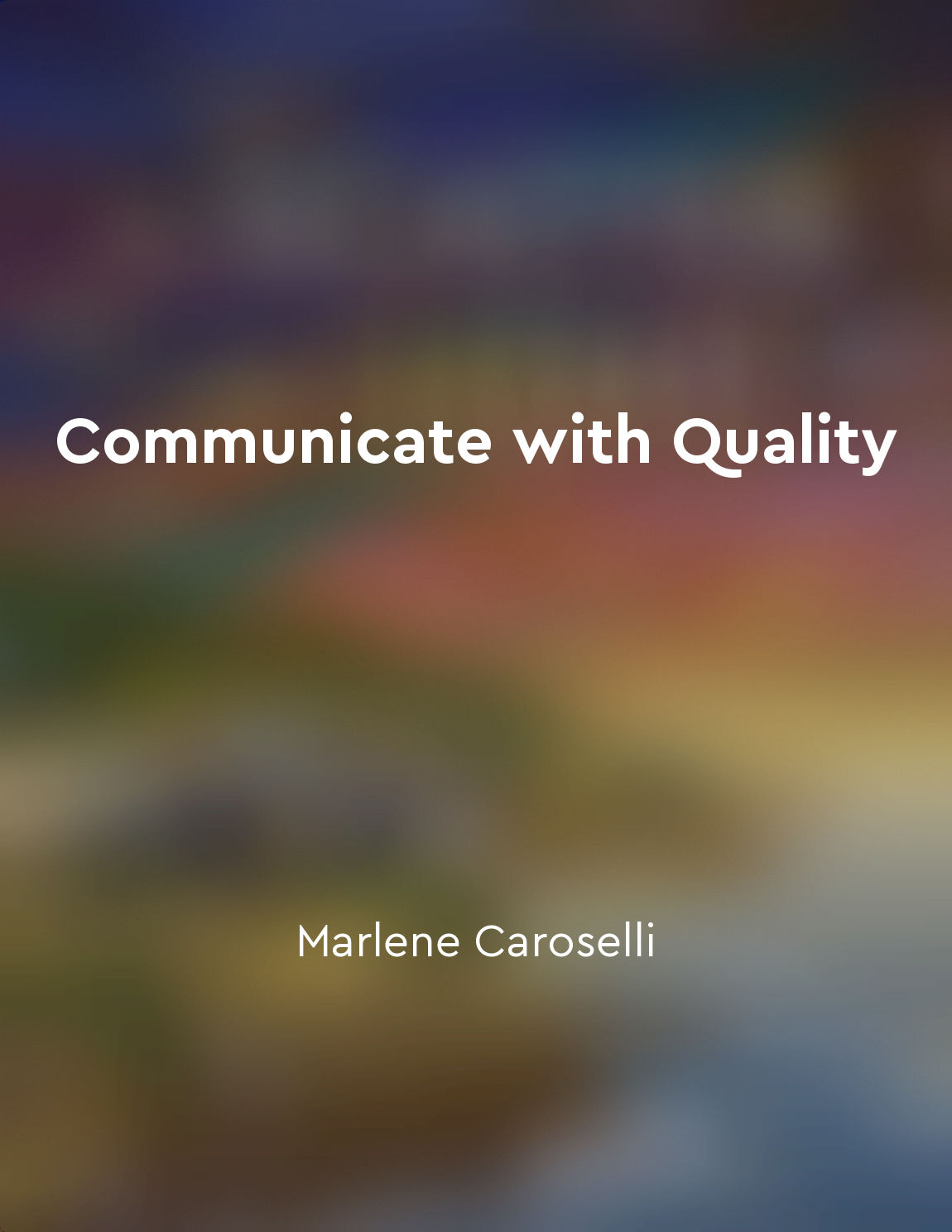Language plays a role in shaping professional identities and reputations from "summary" of Language in Business, Language at Work by Erika Darics,Veronika Koller
Language is not just a means of communication in the professional world; it is also a powerful tool that can shape how individuals are perceived by others. The words we use, the tone we adopt, and the language style we employ all play a crucial role in constructing our professional identities and reputations. When interacting with colleagues, clients, or superiors, the language we use can convey a sense of professionalism, expertise, and authority. For example, using technical jargon or industry-specific terms can demonstrate our knowledge and competence in a particular field. On the other hand, using informal language or slang may give the impression of being unprofessional or inexperienced. Therefore, the language choices we make can significantly impact how others perceive us in the workplace. Moreover, the way we communicate can also affect how we are perceived in terms of social hierarchies and power dynamics within an organization. For instance, using assertive language and a confident tone can signal leadership qualities and command respect from others. Conversely, using hesitant language or a passive tone may be seen as a sign of indecisiveness or lack of confidence. Thus, language plays a crucial role in shaping not only our professional identities but also our positions within the organizational structure. Furthermore, the language we use can also influence how we are perceived in terms of our interpersonal relationships with others. Polite and respectful language can foster positive interactions and create a favorable image of ourselves in the eyes of our colleagues and superiors. Conversely, using aggressive or offensive language can damage our professional relationships and tarnish our reputations in the workplace. Therefore, it is essential to be mindful of the language we use to ensure that we are perceived positively by others.- Language is a powerful tool that can shape our professional identities and reputations in the workplace. The words we choose, the tone we adopt, and the language style we employ all play a crucial role in how we are perceived by others. By being mindful of our language choices and communication styles, we can cultivate a positive professional image and build strong relationships with our colleagues and superiors.
Similar Posts
Building credibility is crucial for effective communication
To communicate effectively, one must first establish credibility. Credibility is the bedrock upon which all successful communic...

Practice active listening to show genuine interest in others
Active listening is a skill that goes beyond merely hearing words. It involves fully engaging in a conversation, showing genuin...

Setting clear goals is crucial for success
Having clear goals is fundamental when it comes to achieving success. Without a clear direction and purpose, it can be challeng...
Use active voice in your writing
Active voice is a crucial element in effective writing. When you use active voice, the subject of the sentence performs the act...
Practice good vocal delivery for impact
To make your words truly impactful, you must pay attention to how you deliver them. Your vocal delivery plays a crucial role in...
Adapting communication style to different situations is important
Communication is not a one-size-fits-all endeavor. It is not enough to have a strong command of language and a way with words. ...
Communication barriers can hinder organizational goals
Communication barriers can hinder organizational goals. When communication within an organization is not effective, it can impe...

Use body language to convey openness and friendliness
To make a positive impression on others, it is essential to use body language that conveys openness and friendliness. When enga...
Authenticity is crucial in communication
The concept of authenticity in communication is a fundamental aspect that cannot be overlooked. It is the cornerstone of effect...

Building trust is key in successful communication
Trust is the foundation of successful communication. Without trust, our messages can be misunderstood or disregarded. When we h...

